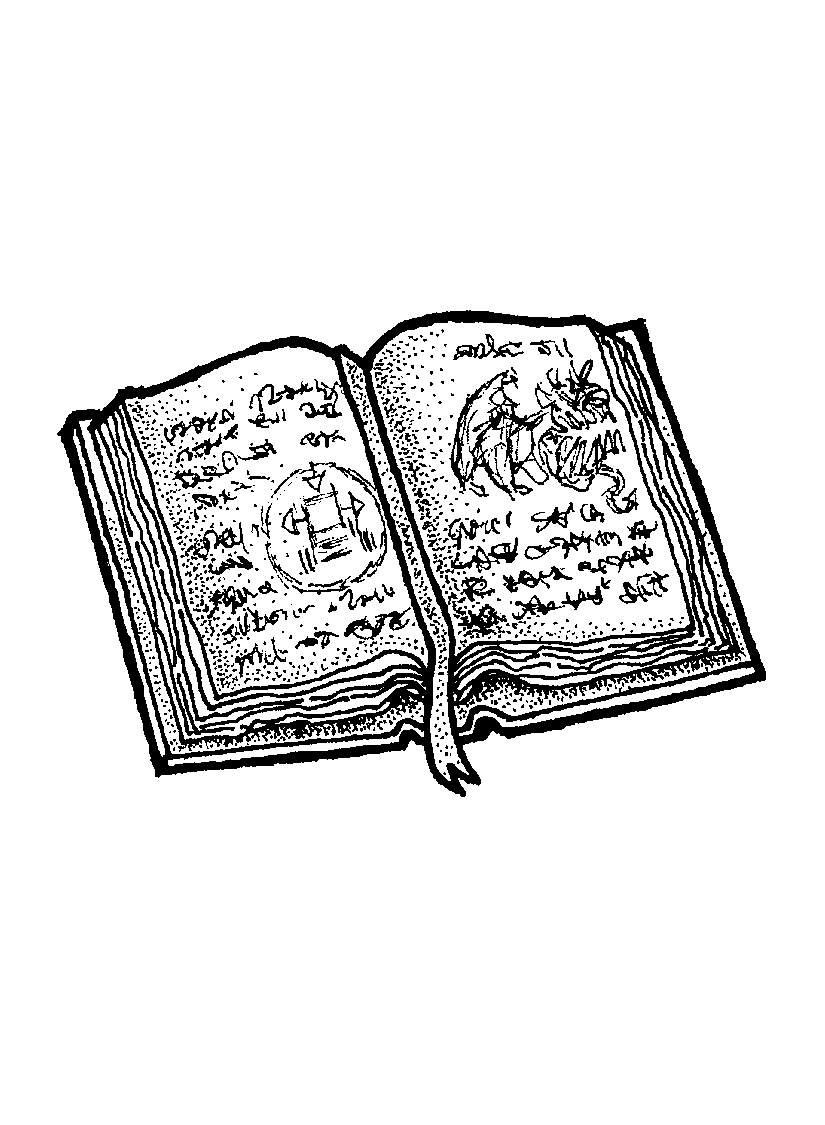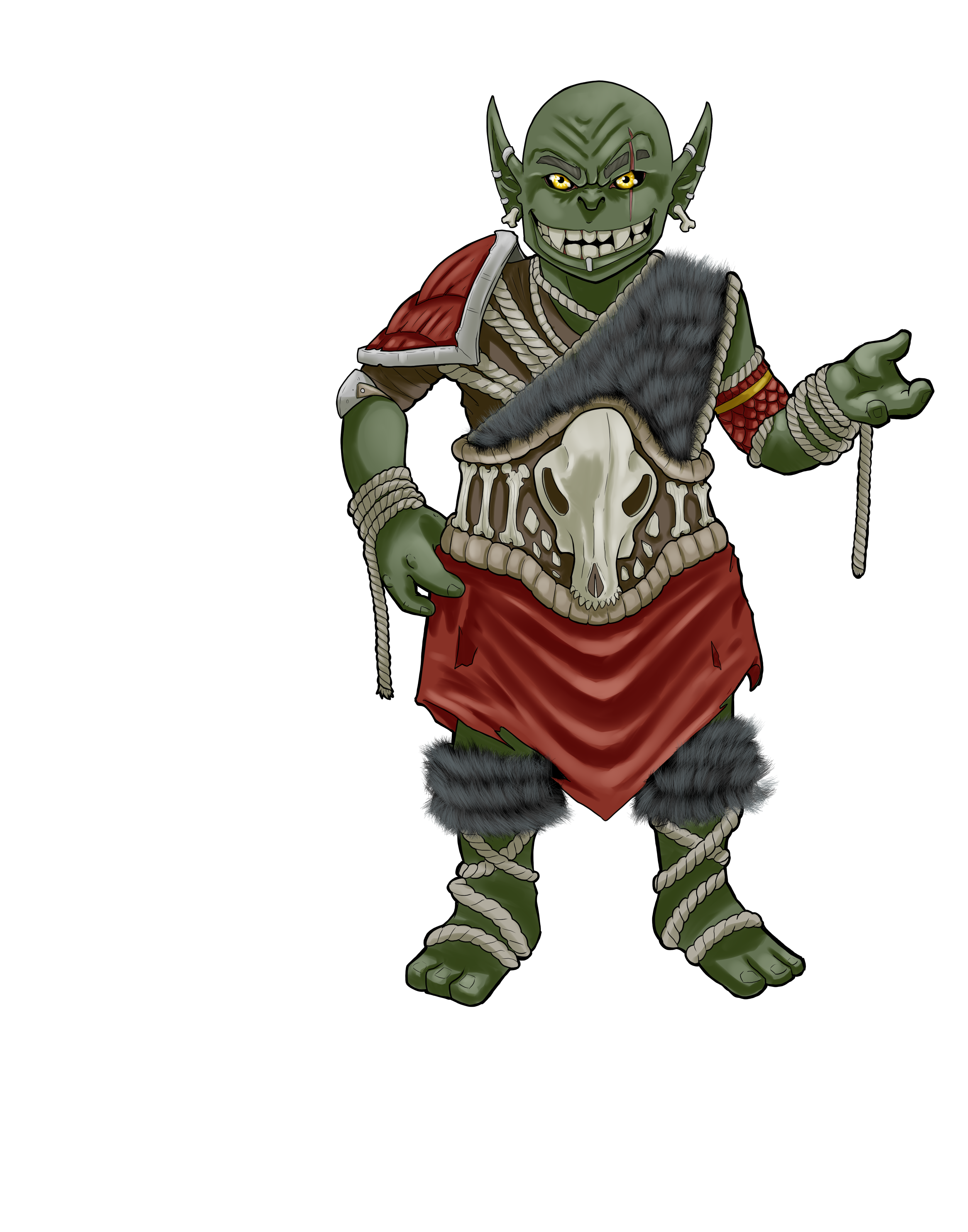Cthasia: The Ohne Islands
"The essence of a role-playing game is that it is a group, cooperative experience." --Gary Gygax

House Rules
Version 0.2.1, updated 10/7/2023
Table Of Contents

Introduction
Through the course of play, rules will be adjusted, changed, or created that alters the Core Rules. These changes are based on feedback from the group, balance issues, or the GM's preference. These changes will be added as needed and with notification to the group.
If you have a change you'd like to suggest, please talk to the GM and the group. Maybe a new spell can be discovered during a campaign. so, the details will be added here in alphabetical order for reference. Whenever possible, references will be included for external resources.
Please refer to this document for changes to the Core Rules. It is the player's responsibility to review the House Rules.
General House Rules
Advantage & Disadvantage
Every now and again, the GM, an ability, or a spell may tell you that you have advantage or disadvantage. When this happens, you roll a second d20 when you make that roll. If you have advantage, you use the higher of the two rolls. For disadvantage, you use the lower.
When a situation arises where you have both advantage and disadvantage, they cancel each other out and you have neither. Roll one d20. Even if more give you disadvantage than advantage (or vice versa), you still only roll one d20. If something allows you to reroll a dice, you can pick to reroll one of the dice but never both.
(REFERENCE: Page 173, 5E Player's Handbook)

Death & Dying
This game is deadly and death happens. The GM is not out to get any player; but, the dice are ruled by another God.
Death
Players are encouraged to maintain a backup character should a death occur. Maybe an adventurer is just in the next room or over the next hill. Who knows what story brings the new character to the group. A character death will not end a session. Life goes on and many stories will be told. Meade must be drunk in honor of our fallen hero.
Dying
- At zero hit points, you are dying. You are unconcious, bleading out, and on your way to your father's.
- On the next turn after going to zero, roll d6. In that many of your turns, you are irrevocably dead. You'll use a d6 to mark down these turns. Everyone will be able to see this counter. This is your Dying countdown.
- At each of your turns, you roll a d20. Natural 20 means you pop up with 1 hitpoint. You have sustained a fleshwound and a miracle has happened.
- Stopping the Dying Countdown requires an ally to help you. They take a round to apply pressure to your would and roll d20 + WIS or INT (DC=10). This stops the countdown; but, you are uncouncious and must wait for healing (magical or otherwise). Other skilled or magical healing that brings you to positive hit points allows you to become concious and in the fight.
- If you take so much damage that you are reduced to -20 hit points, you are blown to smithereens and there is nothing your allies can do. You are gone.
(REFERENCE: Page 20, Index Card RPG)
Initiative
Group initiative will be used to help speed up combat. The party will pick someone to roll 1d20 plus DEX modifier as initiative for the party. The GM will roll 1d20. The highest roll goes first.
The group's initiative will be clockwise from the GM. This allows the players to sit in the order they want the characters to be in. Seating becomes powerful. Put your tanks to the GM's left and your healers to the right. This is powerful and speeds up the game immensely.
No more will a wizard, unless on purpose, be the first to act and have to review their spellbooks. They'll have time to see how the action goes before deciding. A dying character will not have to wait until the next round. What if they don't have time? This solves those problems.
(REFERENCE: Page 78, Index Card RPG)
Level 10
All characters are capped at level 10. Beyond level 10, characters can still find much in the world through equipment, knowledge, and learning magic. This can be done through quests, discovery, and other stories. Capping at level 10 ensures characters never become Gods or unbeatable preserving the discovery possible on The Ohne Islands.
(REFERENCE: Page 11, 5E Hardcore Mode)
Luck points
At the GM's discretion, players earn luck points by doing great role playing or providing great ideas. The GM will roll 1d4 and award that many points. Players can use these points to adjust any d20 roll in game. The exchange rate is 1 to 1 to adjust their own roll and 2 for 1 for other's (includes GM rolls). Players must declare the amount and use of luck points before the relevant roll.
Movement & Distance
Movement and distance are described as one of three zones: Far, Near, Close. You can move from one zone to the next in one round. You can move from Near to Close and have an action.
- Close is toe to toe. Swords and daggers work. If a character can do multiple actions, they can take the step and attack anyone one else close to them.
- Near is just a few steps away and close enough for a spear.
- Far is about 50 feet. A Far shot can be hard to hit, or it may be too far to cast certain spells. Anything further than 50 feet counts as Far. Far, is the distance a character can move in one turn. Bows and thrown weapons work.
There may be obstacles that offer cover in any zone. The GM may assign advantage or disadvantage as they see fit.
(REFERENCE: Page 16, Index Card RPG)
Supplements
The following supplements are allowed in their entirety. These supplements can be found in the downloads section at http://basicfanctasy.org/ and in the campaign google drive folder.
Classes
- Assassins: A Basic Fantasy Supplement
- Barbarians: A Basic Fantasy Supplement
- Druids: A Basic Fantasy Supplement
- Illusionists: A Basic Fantasy Supplement
- Necromancers: A Basic Fantasy Supplement
- Rangers and Paladins: A Basic Fantasy Supplement
- Scouts: A Basic Fantasy Supplement
Races
- Gnomes: A Basic Fantasy Supplement
- Half Humans: A Basic Fantasy Supplement
Additional and Alternate Rules
- 0 Level Spells: A Basic Fantasy Supplement
- Equipment Packs: A Basic Fantasy Supplement
- Familiars: A Basic Fantasy Supplement
- New Spells: A Basic Fantasy Supplement
- Sentient Weapons: A Basic Fantasy Supplement

"Strength, honor, and beer."
Character Creation
This is where it starts, let's make a character. You'll use the information in this article to document all the information about your character that you'll need. Your hero can be any named class in BFRPG and all classes except Quasi-Classes. Ultimately, this is your hero. If you've got questions, just ask.
What you'll need
Paper: You'll need a way to document everything. You could print out a character sheet or you could just use any piece of paper.
Pencil: Look, character sheets change and you'll want to be able to erase data. Sure, some things like your name might not change; but, you'll be managing your hit points and notating how many torches you've used.
4d6: Yes, you'll need some dice. Find your favorite four six-sided dice.
Basic Fantasy Role-Playing Game Core Rules (3rd Edition: All games have rules. This rulebook is the core of our game. You can download and print it out (Paid prints are available, get coil bound) or just use a digital version. I call this book the "Core Rules" for the rest of the document.
Supplemental Material: This includes any supplements you are using. See General House Rules for a list of allowed supplements.
The Basic Fantasy Equipment Emporium: This book is optional; but, I think it really helps. The Core rulebook above is lacking in stuff to buy. Don't you want to spend your gold wisely? Good. Use this book.
1. Ability score matrix
This matrix represents your options for creating your next 20 characters. Yeah. You'll need to hold on to this. You'll be using this often.
Get your 4 six-sided dice. We're going to be rolling a lot. You're going to roll all four and review the results. If you roll a one on any of them, pick that one up and roll it again. If you get another one, do it again. We reroll all ones.
Add up the top three results and record it. Keep doing this until you've written a row of six numbers. Then, start a new row. You'll keep doing this until you have six rows of six values. These results will be your guide for setting the main abilities of Strength, Intelligence, Wisdom, Dexterity, Constitution, and Charisma.
You can use any row or column forwards or backwards. You can even use the diagonals frontward or backwards. But, you can only use that order once. The key here is that you've rolled a whole matrix that will help you make characters for some time. Once you've created twenty characters with this matrix, destroy it and make a new matrix.
Hold off on making any selections. We'll get to that later.
2. Pick a race
Use page 5 of the Core Rules or use the Supplemental Materials to determine your race. Note the ability score requirements for that race. Does your matrix have a line that will fit?
3. Pick a class
You have tons of choices for your class. There's six in the Core Rules and another eight in the Supplemental Materials. Again, note the ability score requirements for that class. Does your matrix have a line that will fit?
4. Set your ability scores
Now that you know your race and class, it's time to set your ability scores. Find the line that you're going to use from your matrix. Remember, you can only use that line once. So, choose wisely and make sure you've identified the best line possible. Enter your ability scores into your character sheet.
5. Update your character sheet
Okay. We've got most of what we need. It's time for you to do some accounting. Enter the following values.
- Ability bonus (or penalty). See p. 4 of the Core rules.
- Special abilities for your race and class. See the relevant pages for these.
- Experience points. If you are creating a first level character, this is zero.
- Level.
- Spells (Magic Users only). See p. 16 of the Core rules and/or the Supplemental Material.
- Hit points. 1st level characters get the maximum possible hit points. Don't forget to add your constitution bonus (or penalty).Character Creation
Example Ability Score Matrix
| 15 | 13 | 13 | 12 | 11 | 14 |
| 13 | 13 | 16 | 14 | 13 | 16 |
| 15 | 12 | 11 | 10 | 15 | 16 |
| 14 | 14 | 14 | 17 | 16 | 16 |
| 15 | 9 | 14 | 15 | 14 | 15 |
| 15 | 12 | 14 | 14 | 14 | 13 |
6. Pick your starting equipment
Every adventurer needs equipment, weapons, and clothes. Time to go shopping.
- Determine your starting gold by rolling 3d6 and multiplying the result be ten.
- Pick some standard equipment pack(s) from page 20 of The Basic Fantasy Equipment Emporium. Deduct the costs from your starting gold. Note the weight of the pack on your character sheet.
- Select your weapon(s), clothing, and/or armor. Deduct the amount from your starting gold. Note the weight on your character sheet.
- Determine your encumberance and make sure you are below the amount for a heavy load. See page 36 of the Core Rules.
7. Final accounting
We're getting to the end and it's time for some final accounting on your character sheet. Update the following values.
- Attack Bonus (p.46 Core Rules).
- Saving throws (p.53). Be sure to adjust based on class and race. Positive numbers are deducted.
- Attacks for each weapon. Note attacks for melee and ranged. Don't forget to record the damage.
- Armor class.
8. Pick a name
It's time to name your character. If you have no idea what to do, search the internet for a name generator and find a name that you like.
9. Determine languages
All characters know common and their race's language. More can be picked based on Intelligence ability bonus.
10. Pick a Homeland (Not required)
Refer to online resources for determining where your character comes from.
You're done
Well, that's it. Now, you've got a character ready to conquer the wilds or solve the next political drama.
If you're want to take it farther, feel free to develop a backstory and whole history of your character. Add all the flavor you want and your fellow players will enjoy learning more about your character throughout your history.
The next thing you need to do is let the GM know you're ready. They'll likely want to review your sheet and you might even want to share some of your backstory. GMs like having those details and weaving them into the story. Who knows? Your long lost brother might be the subject of the next adventure.
"May all your rolls be 20!"

Magic
I am not going to lie. The spell system sucks. But, it's always sucked. Just think about it. Why do spellcasters have to wait so long to be able to cast spells of their level? A 3rd level Magic-User cannot cast 3rd level spells. And, don't get me started about spell slots. Now, a spellcaster can only cast a certain number of spells per day? It just doesn't make sense. Here, the spell system is borrowed heavily from 5E Hardcore Mode. We're setting magic free.
(REFERENCE: 5E Hardcore Mode, Pages 9-20)
Forget slots, Think Spells
That's right. Spell slots are gone. Spellcasters can cast their spells freely. But, there are several catches, spells are cast at their native level. They don't get stronger as you level. Level three characters can cast level three spells immediately and as often as they want. In fact, at level up, characters gain access to three new spells of their current level. The other catches? Keep reading.
Roll to cast
Spellcasters must roll to cast. Any frequency limits still apply; but, spells are only expended when they are successfully cast. Rolling means there is a change for critical success and failures. Additionally, advantage and disadvantage can be applied to these rolls.
When casting spells level one or higher, roll with INT or WIS and meet or beat DC 10 for success. It is possible that other factors may increase the DC; but, the GM will let you know. Critical successes do not expend spell use limits and inflict double effect. Yes. That means a 6d6 fireball is possible--at third level. Critical failures fizzle, do not expend the spell, and requires a roll against the volatile magic table.
Caster cases
Clerics (And, subclasses) memorize their level plus 2 of any spells at or below your level per day. Because they get their power innately from their deity or nature, they can choose from their entire list each day. No learning.
Magic-Users (And, subclasses) learn 3 new spells at level up of that level. Each day, they memorize their level times 2 from their spellbooks. Because they study the arcane, Magic-Users must choose to learn their spells and study them every morning to be able to use them.
Volatile Magic Table
| d12 | Type | Description |
|---|---|---|
| 1 | Disaster | Expend the spell, drop to 1 hit point, and cast a randomly selected spell at a random location in the encounter. |
| 2 | Mutation | Be twisted by formless energy. One of you rlimbs is that of a crab, insect, or tentacled thing. |
| 3 | Rift | A tear opens in space-time, sucking unsecured objects or creates into deep space over 4 rounds of time. |
| 4 | Imps | 1d12 Imps appear in a brinstone cloud, angry at the spellcaster. |
| 5 | Seared | Be stricken with 1d10 arcane damage. |
| 6 | Toxic | A cloud of poisonous smoke appears, engulfing the current encounter for 1d4 rounds. |
| 7 | Spell Sickness | Forge tthis spell for 1d4 days, or until a long rest in safety. |
| 8 | Dazed | Spend your next turn stunned. |
| 9 | Misfire | Cast the spell, but at a random target or location, including allies. |
| 10 | Dud | Nothing happens. |
| 11 | Sparkles | Comical, colorful confetti fills the air, attracting unwanted attention. |
| 12 | Late | The spell casts, but 1d4 rounds from now. |
(REFERENCE: Stolen completely from 5E Hardcore Mode, page 9.)

Spells
Here lies the newest spells available to all Magic-Users. Additionally, new spells are included in the Supplemental Material for other Magic wielding classes. Using magic is a sacred committment and choosing to use magic can be the death of the wielder. The Gods may limit you or your Arcane knowledge may not be perfect. Pursue this vocation with extreme caution.
Familiar
Any spell casting class 1
- Casting Time: 12 hours
- Range: *
- Components: Censure (100gp value), rare incense
- Duration: Instantaneous,
This spell allows for spell casting classes to create a bond with an animal. Familiars are life partners with characters through a special bond. By the casting of Familiar, a spell caster forms a bond with an animal or creature (or sometimes an item). The caster may attempt to summon an appropriate subject from the nearby region, or he may bond with an appropriate subject already in close proximity. Casting the spell requires special materials including censer and rare incense (at least 100gp per casting). The ritual takes 12 hours of meditation and concentration to build the bond. At the end of the casting period, the caster must make an Ability Check modified by his Charisma bonus; if successful the bond has been established, but if failed the caster cannot bond with the creature in question ever (even with subsequent castings of the spell).
Refer to the reference material for full details.
(REFERENCE: Familiars: A Basic Fantasy Supplement)
Identify
Magic-User 2
- Casting Time: <8 hours
- Range: Touch
- Components: A pearl (100gp value), crushed and stirred into wine with an owl feather. This must be drunk before casting.
- Duration: Instantaneous
This spell determines the single most basic function of the magic item, including how to activate that function (if appropriate), and how many charges are left (if any). For example, a +2 vorpal sword, a +2 dancing sword, and a +2 sword would all register as "+2 to attack and damage rolls."
If a magic item has multiple different functions that are equally basic, identify determines the lowest-level function. If these functions are also of equal level, the GM decides which is identified.
Some items may not take long to identify; but, it's not uncommon for a magic-user to take 8-hours of research and time for the potion to take affect enabling the caster to identy an item. For full identification of an item, please visit a Magic-User of 8th or higher level.
(REFERENCE: Page 252, 5E Player's Handbook)

Useful links and References
Here are links that are useful and have been used to create this document. If you find something useful, please let the GM know so it can be added.
Rules
- 5E Basic Rules: https://www.dndbeyond.com/sources/basic-rules
- 5E Hardcore Mode: https://www.drivethrurpg.com/product/303156/5e-HARDCORE-MODE
- Basic Fantasy Role-Playing Game: http://basicfantasy.org
- Index Card RPG: https://www.drivethrurpg.com/product/212262/INDEX-CARD-RPG-Core-2E
World data
